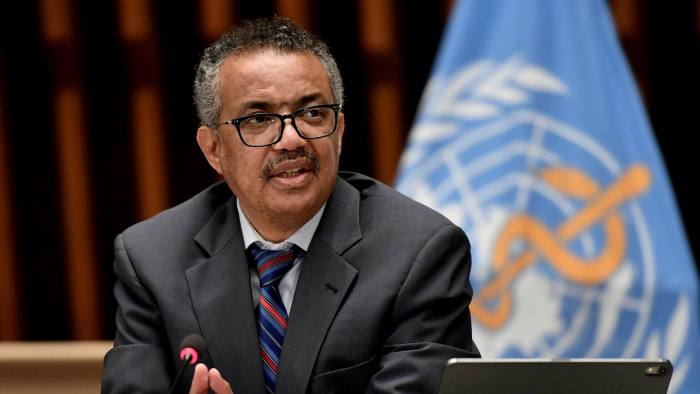People face ‘horrific’ situation in Ethiopia’s Tigray: WHO chief

By ![]()
Ethiopia’s conflict-hit Tigray region is facing a horrifying situation with people dying of hunger, health services destroyed and rape “rampant”, according to the World Health Organization chief, who is from the region.
“The situation in Tigray, Ethiopia, is, if I use one word, horrific. Very horrific,” WHO Director-General Tedros Adhanom Ghebreyesus told a news conference on Monday.
Nobel Peace Prize winner Abiy declared victory later that month when the army entered the regional capital Mekelle.
But fighting continues and the six-month conflict has sparked allegations of massacres and rape by Ethiopian forces and troops from neighbouring Eritrea.
Tedros pointed out that about five million people in the region are now in need of humanitarian aid, and especially food aid.
In addition, hundreds of thousands of people have been displaced from their homes, including more than 60,000 who fled into Sudan.
At the same time, health services have been looted and destroyed, he said, adding that “the majority of them are not functioning.”
Aid access
The WHO chief also condemned indiscriminate killings and the widespread use of sexual violence in the conflict.
“Rape is rampant. I don’t think there was that scale anywhere else in the world, actually,” he said.
Asked about the COVID-19 situation in his home region, Tedros said there were no services to rein in the disease, but said it is not a priority given the other crises.
World leaders and aid agencies have repeatedly called for full humanitarian access to the crisis-wracked areas as fears grow of impending disaster.
On Friday, the European Union condemned the continued blocking of aid to the region, denouncing “the use of humanitarian aid as a weapon of war”.
WHO emergencies director Michael Ryan warned on Monday that “access to victims in Tigray remains highly unpredictable”.
This, he said, was creating “a huge barrier to access to the populations that need our help”.
Risks of outbreaks
With most health facilities destroyed, the UN health agency was concerned about rising risks of cholera, measles and other outbreaks, he said.
“We have also issues of continuing to get (cholera) vaccines in,” he pointed out, stressing the need to “get those doses in there” and to plan immunisation campaigns “to avert a cholera disaster”.
Ethiopia’s foreign ministry on Monday dismissed concerns about aid access.
“There were indeed difficulties in accessing some pocket areas because of security issues but that has now been addressed,” the ministry said in a statement.
“That is why it is absurd for some partners to continue to lament the lack of access in spite of the actual situation on the ground.”
The statement also said the government was committed to investigating rights abuses and denounced “unfair and unwarranted accusations against Ethiopia”, without mentioning Tedros.